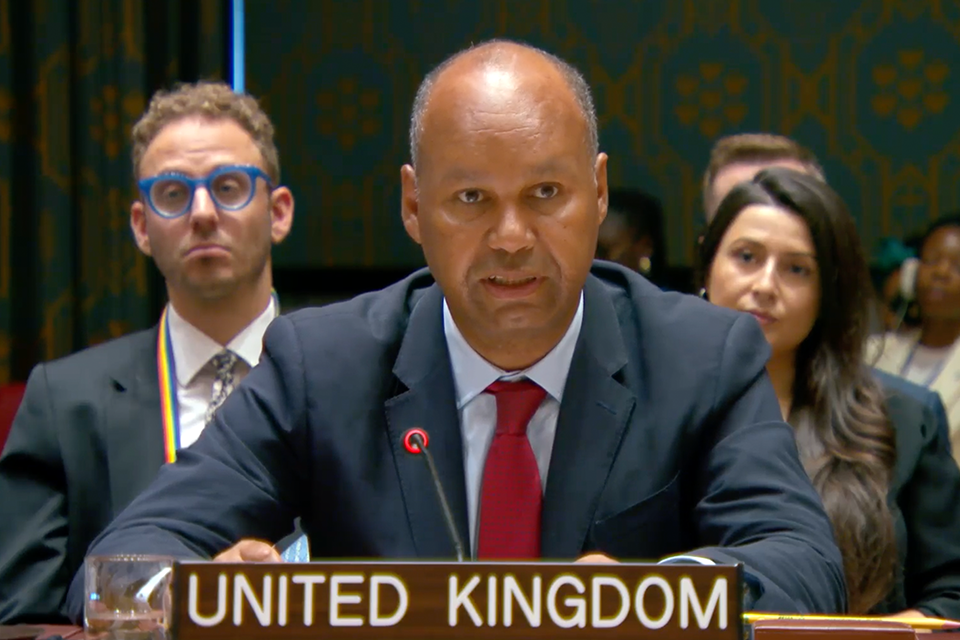Women’s contributions are integral in all stages of peacekeeping: UK statement at the UN Security Council
Security Council Statement by Ambassador James Kariuki, UK Deputy Permanent Representative to the UN, at the UN Security Council meeting on the Women, Peace and Security (WPS) agenda.

President, as our briefers today have made clear, the Women, Peace and Security (WPS) agenda recognises the critical role women play in building sustainable peace. Women’s contributions are integral in all stages of peacekeeping missions, including drawdowns, transitions and withdrawals.
I will set out three priorities today: perspective, participation and prevention.
First, perspective. We must integrate a gender perspective into all components of peacekeeping missions, including preventing and responding to Conflict Related Sexual Violence (CRSV). Gender-responsive conflict analysis and technical gender expertise are critical to mission effectiveness, including in transition planning.
I am pleased that we have secured strong gender commitments in recent mandate renewals, including on gender-based violence in Haiti and on women’s participation in Colombia.
We call on Member States, UN entities and NGOs to prioritise WPS considerations in all disengagement planning, including the planned withdrawal of MONUSCO.
Second, participation. Women peacekeepers engage with populations and in places less accessible to men, bringing unique insights. This improves awareness of security risks, including CRSV, and builds trust with local communities.
The UK is creating an enabling environment for women peacekeepers. We contributed £1 million to the Elsie Initiative Fund last year, and the British Peace Support Team is training women in driving and weapons handling, improving women’s pass rates in assessments.
Participation of women’s rights organisations is also key. MINUSMA was a strong example of this; their engagement with civil society allowed them to change attitudes towards CRSV and better advocate for survivors.
Lastly, prevention. Transitions and drawdowns expose local communities to heightened risks of CRSV due to security gaps, weakened institutions and increased political tensions. It is therefore vital to ensure prevention remains an ongoing priority through the development of mission-wide, coordinated and survivor-centred approaches for addressing CRSV. This particularly in the context of in live transitions and withdrawal.
Prevention also includes tackling sexual exploitation and abuse. This is why, last year, through the British Peace Support Team, the UK trained 2,208 troops and police on sexual exploitation and abuse.
President, to be truly effective, peace and security mechanisms must understand and address the security needs of all people, including women and girls. Let us commit to ensuring that the WPS agenda plays a central role in all peacekeeping plans, including drawdowns, transitions and withdrawals.